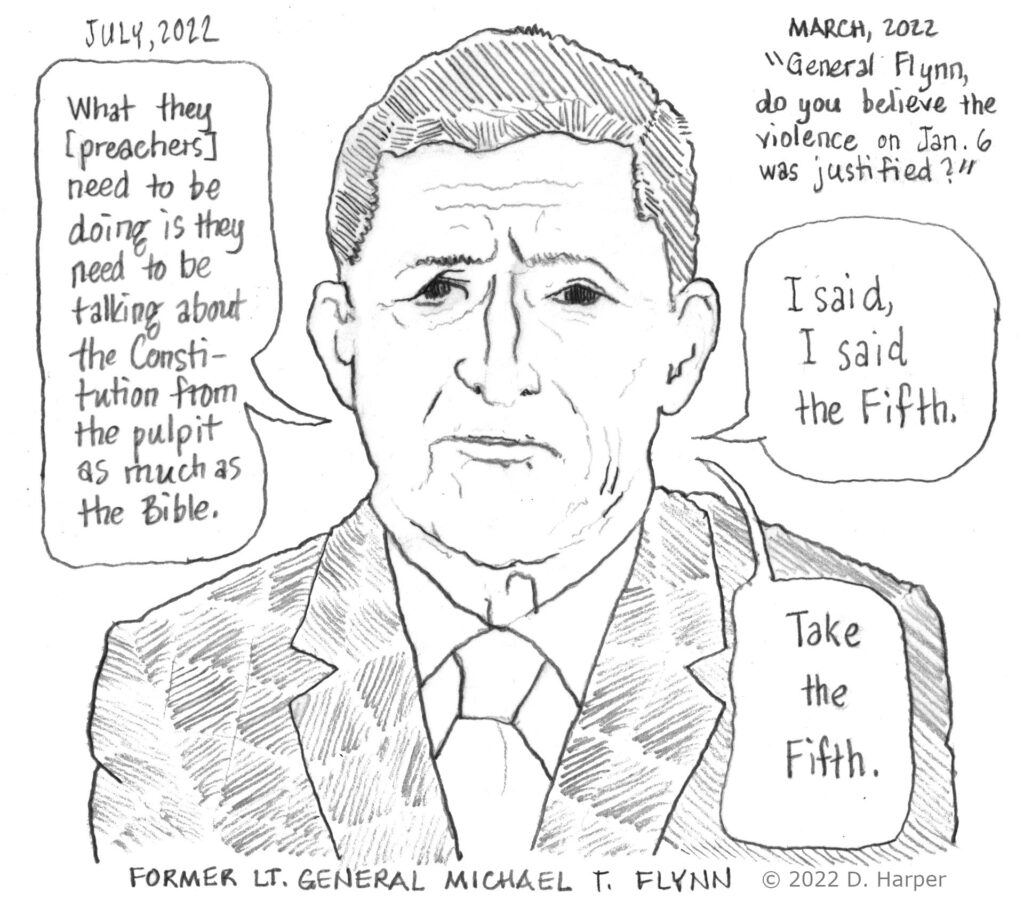Rodney Kennedy, in an opinion piece on Baptist News Global, says:
“I’m attempting to wrap my mind around the idea of a former Army general telling me I should preach from the U.S. Constitution. I mention this only because Michael Flynn has been occupying American pulpits, recommending the Constitution as a second holy book for preachers. ‘What (preachers) need to be doing is they need to be talking about the Constitution from the pulpit as much as the Bible. They have to do that,’ Flynn has said.”
Kennedy calls Flynn’s remark idolatrous. From his Christian point of view, the Bible stands alone and does not need to be propped up by any other texts.
I don’t know if Flynn actually believes what he said, or if he just said it to draw audiences. (Time reported that Flynn made $150,000 in 2016 for speaking engagements, a strong motivation to say what his audiences want to hear.) But I do know Flynn is giving voice to an opinion genuinely held by many people in the United States. These folks genuinely believe that the U.S. Constitution is divinely inspired, just like the Bible, and thus should be treated as a sacred text. These folks use short passages from the U.S. Constitution as proof texts, just as short passages from the Bible are used as proof texts, to prove the truth of a certain theological opinion or doctrine.
What a fascinating historical moment. We seem to be watching a sort of new Great Awakening, a movement which curiously adds the U.S. Constitution as a sacred text co-equal to the Bible. Like previous Great Awakenings, these folk are vibrant and adventurous and enthusiastic. My Puritan forebears would have said that enthusiasm results from excessive religious emotions that come from a deluded conceit that one is specially favored by God, and I’m still enough of a Puritan to agree. Nevertheless, what a fascinating historical moment.

